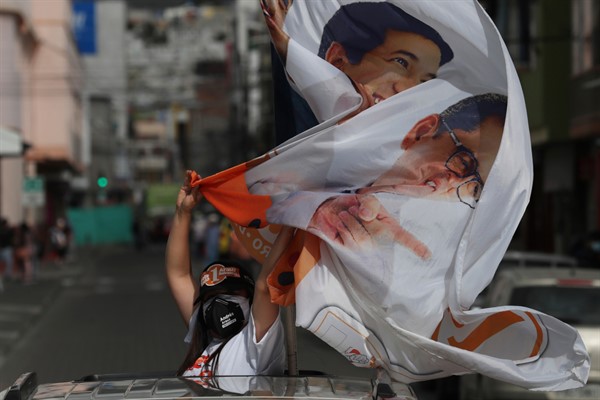The nightmarish scenes last spring from Guayaquil, Ecuador’s largest city and economic capital, exposed what has arguably been the Western Hemisphere’s worst COVID-19 outbreak. Many of the Pacific port city’s affluent residents had been visiting Europe during a school break last January and February; a few weeks later, its hospitals and morgues were quickly overwhelmed. Dantean images of the dead abandoned on sidewalks by grieving family members, who feared they would also lose their lives to this alien new disease, flashed around the world.
But things had already been rough in the small Andean nation before those horrors. In October 2019, deadly riots had erupted in the capital, Quito, during protests against a harsh austerity program unveiled by President Lenin Moreno, whose government faced an economy mortgaged to the hilt and a fiscal deficit consistently running between 4 percent and 7 percent of GDP. After calling in the army to take control of the streets and quell the public backlash, Moreno was forced to cancel the austerity package, in a humiliating policy U-turn that only postponed the day of economic reckoning.
There was little doubt that Ecuador’s economy needed significant reforms, after years of unsustainable largesse under the previous president, Rafael Correa, the populist, socialist leader who had shown an increasingly authoritarian streak. But the abrupt nature of the Moreno administration’s deep spending cuts was, according to even its supporters, an act of political malfeasance. Under a $4.2 billion financing deal it had reached with the International Monetary Fund earlier in 2019, Ecuador was required to reduce its deficit to meet agreed-upon fiscal targets. But instead of pursuing more measured reforms to the tax code, Moreno suddenly abolished fuel subsidies, which cost an estimated $1.4 billion annually, but are a crucial leg-up for many poor Ecuadorians, especially in rural areas. The IMF itself had been among those warning Moreno, to no avail, that any economic reforms needed to be implemented carefully and gradually.

